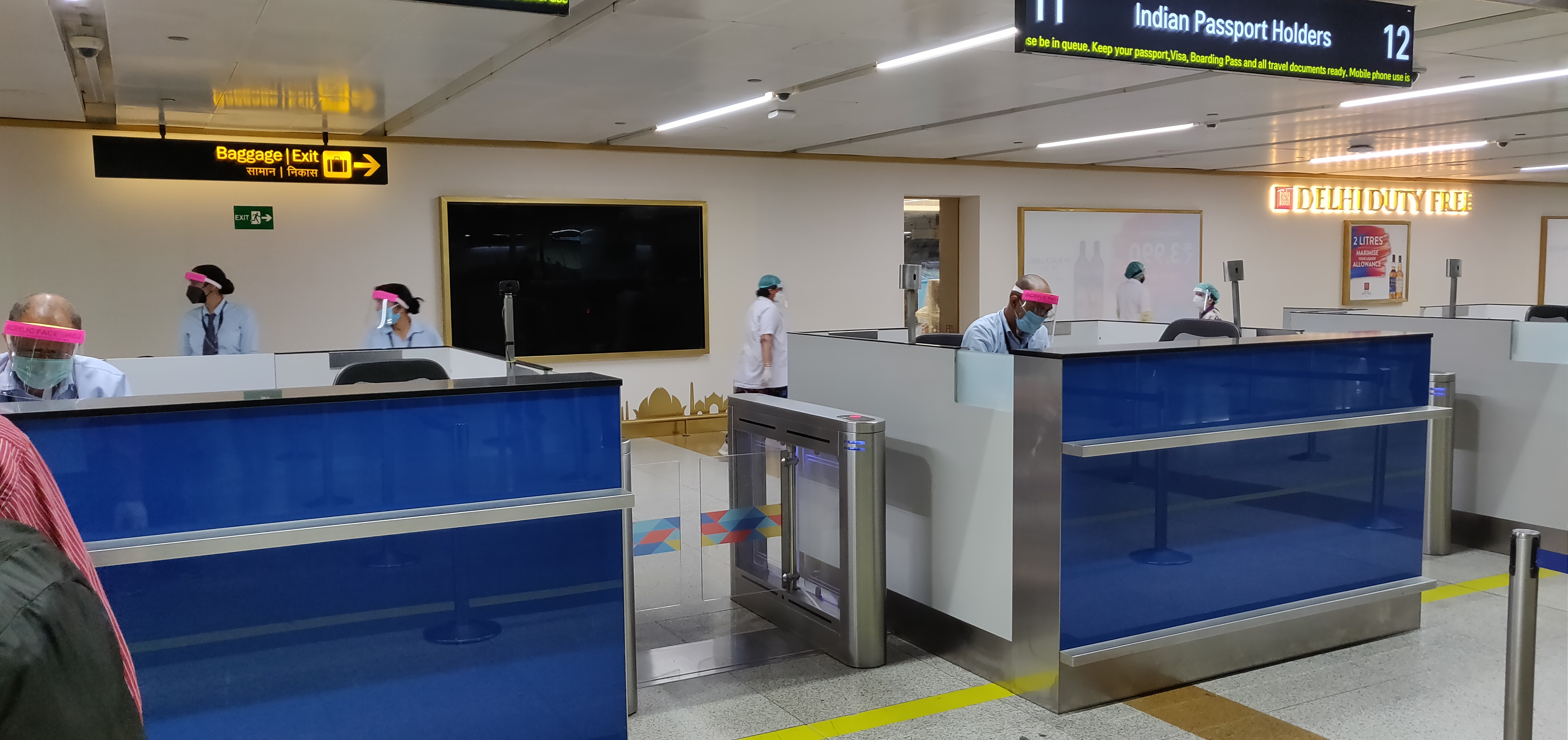India and Singapore are planning to implement new measures to curb the spread of Omicron coronavirus variant which has recently been detected in the Netherlands, Denmark and Australia even as more nations imposed travel ban to stop the transmission.
The new potentially more contagious Covid-19 variant was first identified in South Africa.
Indian Prime Minister Narendra Modi had chaired a review meeting with his officials about the plans on international travels, following which an urgent meeting was called by the Home Secretary in which various precautionary measures were discussed.
The new measures state that all the international passengers entering India have to submit 14-days travel details and upload a negative RT-PCR test report on the Air Suvidha portal prior to the journey.
Secondly, travellers from countries in the ‘at-risk' category will have to take the post-arrival Covid test and wait for results at the airport. They have to go through a seven-day home quarantine if tested negative for the virus and take up a re-test on the eighth day. If tested negative, they have to further self-monitor for the next seven days.
Thirdly, travelers from countries excluding the 'at risk' category will be allowed to leave the airport and require to self-monitor health for 14 days' post-arrival. Five per cent of total flight passengers will undergo post-arrival testing at random at the airport.
Fourthly, genomic surveillance for variants is to be further strengthened and intensified.
Lastly, Airport Health Officials (APHOs) and Port Health Officials (PHOs) will be sensitized for strict supervision of testing protocol at airports and ports respectively.
Similarly, Singapore has also barred entry to long-term pass holders and short-term visitors with a recent travel history to Botswana, Eswatini, Lesotho, Mozambique, Namibia, South Africa and Zimbabwe.
The country’s Prime Minister Lee Hsien Loong has said that it is tracking developments surrounding the newly emerged Omicron Covid-19 variant "very closely" and could be forced to dial back its reopening plans.
"We're tracking this very closely. We're not sure yet but we may well be forced to take a few steps back before we can take more steps forward," he said during his speech at the People's Action Party (PAP) conference.
Lee, who is secretary-general of the country's ruling political party, added that he remains confident Singapore will find its way towards "living with the virus" and safely resuming regular activities. "We are making all this effort because we want to get there safely with as few casualties along the way as possible," he said.
Singapore began easing measures on dining out, social gatherings and house visiting last week. This came after nearly two months of restrictions, dubbed the "Stabilisation Phase", that were implemented to handle the sharp rise in Covid community cases.
In his speech, Lee also emphasised how national crises such as the Covid-19 pandemic are a "test of trust".
"One big reason our measures against the pandemic are working is because Singaporeans trust the PAP government. They trust that the PAP government will keep everyone safe and keep Singapore in working order," he said.
As a result of this trust, Singaporeans have also "patiently complied" with "burdensome" safe management measures imposed and understand that changes in plans are hard to avoid given the rapidly changing situation, said Lee.
"I'm very glad that everyone came together, accepted the inconveniences and hardships and made our measures work. Thank you everybody," he added.
On Friday, the World Health Organisation (WHO) designated the Omicron variant – also known as B.1.1.529 – as being one "of concern".
WHO said it received its first report of the variant from South Africa on 24 November, with the first confirmed infection having been detected in a sample obtained on November 9.
Read more Singapore News and India News here



